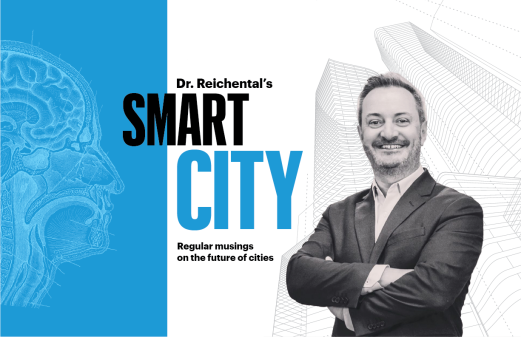White House, DOT announce $50M city transportation challenge

The White House and the Transportation Department are highlighting urban planning for autonomous vehicles and the future of transportation with a new contest, awarding one city $50 million for “bold, data-driven ideas to improve lives.”
The Transportation Department will administer the challenge, and provide the bulk of the prize money, which will be awarded based on how well the city’s vision adheres to the department’s Beyond Traffic 2045 plan, which centers around innovative approaches to urban transportation elements using data, analytics and personal mobile devices enmeshed with automation, connected vehicles and sensor infrastructure.
“This is an opportunity for mayors and city leaders to define what it means to be a smart city when it comes to transportation,” Transportation Secretary Anthony Foxx said in a webcast Tuesday. “Transportation, in some ways, is still in the 20th century when it comes to thinking about technology, innovation and the kind of inputs that mayors think about all the time when it comes to how to integrate transportation and the way of life.”
Cities must submit their “high-level, 30-page ideas” proposal for consideration by Feb. 4. In March, the Transportation Department will award $100,000 each to five finalists to complete final implementation plans. In May, the finalists will submit those plans back to the Transportation Department. The winner will be announced in June.
The department is looking for a “medium-sized city” — with a population between 200,000 and 850,000 people — with a dense urban population and an established public transportation system, according to Mark Dowd, deputy assistant secretary for research and technology at the Transportation Department.
The visions competing cities present also need to accommodate “connected vehicles that can talk to each other” and self-driving, or autonomous, vehicles, as well as partnerships city governments will launch to mobilize and pilot these technologies on their streets, according to the announcement from the department. In their applications, cities will need to list population characteristics, their approach to the Beyond Traffic 2045 vision elements, the data cities currently collect, potential risks, the outside partners the city plans to work with and the city’s measurable smart transportation goals.
“We’re hoping to incentivize you at the local level to work hard,” Foxx said. “Ultimately, we know the best laboratory we have for emerging innovation and technology is where it is most needed, which is in our cities.”
The new contest, details of which were posted Monday, comes alongside the announcement that the Transportation Department will begin a public-private partnership with Vulcan Inc. — Microsoft co-founder Paul Allen’s investment company — which has committed to contribute $10 million to the award to support infrastructure for electric vehicles. The other $40 million will come from the DOT.
In a White House blog post from Jeffrey Zients, the director of the National Economic Council, and John Holdren, the director of the White House’s Office of Science and Technology Policy, the administration said the challenge was an example of how to keep the U.S. “at the forefront of transportation innovation.”
The Smart Cities Challenge announcement comes on the heels of the October release of the Strategy for American Innovation roadmap, designed to encourage technological advancements in the public and private sectors. Earlier in the year, the White House announced $160 million in federal research grants for smart cities projects — the Transportation Department challenge will fall under that proposed $160 million.






